There a different types of FFL to choose from. Make sure you understand which FFL type is best for you.
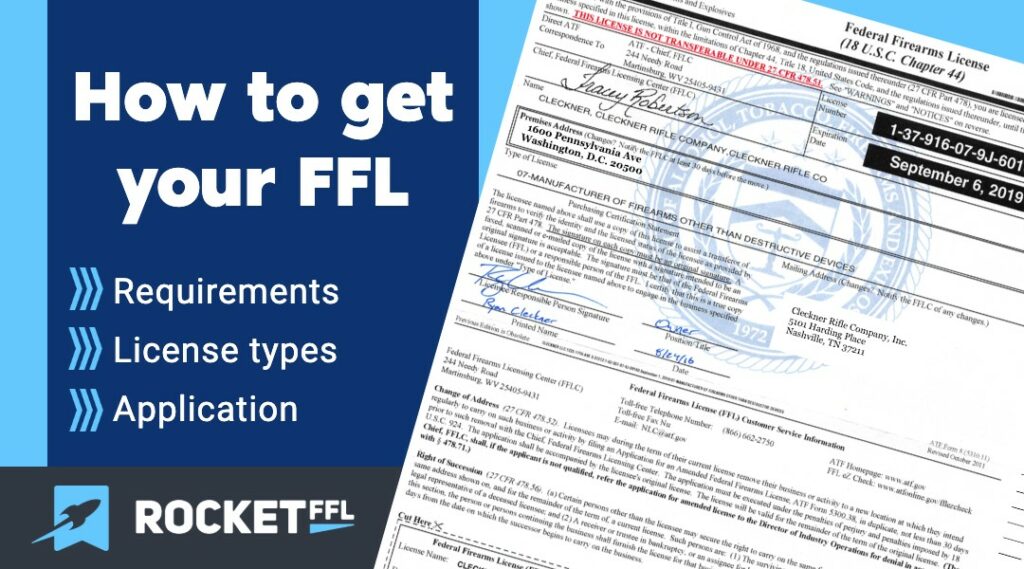
How to Get an FFL License [2025] Step-by-step Guide
If you’re wondering how to get a ffl, I have some good news for you – it’s easier than you think.
And, with how things are shaping up at the federal level, this might be the best year to start and ffl business and become an FFL holder!
In less than a couple of hours of work, four easy steps, and less than $200, you could become a federal firearms licensee and have your very own firearms business.
When you get your FFL from the ATF, you can become a gun dealer, firearm manufacturer, ammunition manufacturer, or even just collect a transfer fee for firearm transfers.
What is an FFL? An FFL, or Federal Firearms License, is a license issued by the ATF that allows someone to be engaged in the business of firearms (this includes making firearms and/or buying and selling guns) or be a licensed collector.
Getting a Federal Firearms License (FFL) is a good move. Depending on the FFL license type you get, you can make firearms (yes, even full-auto machine guns and silencers), you can import firearms, and you can be an FFL dealer selling weapons – you can even legally do all this from your home.
With the right steps, you can even sell them internationally. Yes, you can become an international arms dealer!
The best part is, with only two firearms sales, you could easily make back your money and never have to pay marked-up prices from gun stores or FFL dealer transfer fees for a background check. Instead, you’ll be able to buy directly from distributors and have the firearms shipped directly to you – this can save you hundreds of dollars per gun.
Even better, you can now be the FFL Dealer collecting transfer fees and charging a markup on your FFL firearms sales
You know you want an FFL, but you’re not sure how to get one. Good news! Follow these four steps and you’ll be up and running in no time:
Step 1 – Ensure You Meet FFL Requirements
If you can possess a firearm and are at least 21 years old, then you satisfy the eligibility requirements to get an FFL from the ATF and get started with your own gun store.
The requirements for getting an FFL are that easy. The ATF, and possibly your state, have minimum requirements that you and your business (if applicable) must meet before you’ll get your license to be a licensed firearms dealer or manufacturer.
There are certain classes of people who can’t possess firearms or ammunition, and therefore can’t get an FFL. These people are considered “prohibited persons” under the Gun Control Act.
There are also some location requirements that may vary depending on your state of residence as part of the application process. For example, federally, you can be a home based FFL but some states restrict it.
For example, if you’re living in an apartment building in New York city, you probably aren’t going to get an FFL. But, as long as your local zoning approves of you having a firearms license at the address you choose, then the ATF will give you an FFL!
There are a few tricks to getting your FFL at your home – I share all of these and more in the Get Your FFL Course.
Step 2 – Choose Your FFL License Type
The type of FFL you get depends on what you intend to do with it.
If you want to deal in firearms and/or be a gunsmith, then you’ll only need a Type 1 FFL.
If you want to manufacture firearms, then you’ll need a Type 7 FFL. It’s important to note that a Type 7 Federal Firearms License also lets you be a firearms dealer – therefore, if you want to manufacture and sell firearms, a Type 7 FFL covers both! The Type 1 FFL is, by far, the most popular followed by the Type 7 FFL.
Here’s a breakdown of the number of each type of FFLs:
- Type 1: 47,052
- Type 2: 6,033
- Type 6: 1,790
- Type 7: 20, 795
- Type 8: 1,674
- Type 9: 140
- Type 10: 497
- Type 11: 296
- TOTAL NUMBER OF FFLs: 78,277
For a breakdown of what each type of federal firearm license allows, along with which class of SOT applies, see this chart:
FFL License Types
| FFL License Type | FFL License Purpose | SOT Class |
|---|---|---|
| Type 01 FFL | Dealer/Gunsmith of Firearms | 3 |
| Type 02 FFL | Pawnbroker/Dealer of Firearms | 3 |
| Type 03 FFL | Collector of Firearms | n/a |
| Type 06 FFL | Manufacturer of Ammunition | n/a |
| Type 07 FFL | Manufacturer/Dealer of Firearms and Ammunition | 2 |
| Type 08 FFL | Importer/Dealer of Firearms | 1 |
| Type 09 FFL | Dealer of Destructive Devices | 3 |
| Type 10 FFL | Manufacturer/Dealer of Destructive Devices | 2 |
| Type 11 FFL | Importer/Dealer of Destructive Devices | 1 |
SOT stands for Special Occupational Taxpayer (sometimes called an SOT License)and depending on which Class of SOT goes along with the federal firearms license type you choose, you can either buy/sell, make, and/or import NFA Firearms (sometimes called Class 3 firearms) like suppressors, short barreled rifles, machine guns, and more.
SOT Class Activity
| Activity | SOT Class | FFL Types |
|---|---|---|
| Buy/Sell NFA Firearms | Class 3 | 1, 2, and 9 |
| Make NFA Firearms | Class 2 | 7 and 10 |
| Import NFA Firearms | Class 1 | 8 and 11 |
Here’s a table that shows each FFL type and SOT class along with the NFA business activity. If you’re wondering about the Type 09, 10, and 11 FFLs, those are required if you’re looking to work with Armor Piercing Ammunition or Destructive Devices (grenades and bombs).
FFL Types and SOT Activities
| FFL | SOT Class | Sell NFA | Make NFA | Import NFA |
|---|---|---|---|---|
| Type 1 FFL | 3 | ✓ | X | X |
| Type 02 FFL | 3 | ✓ | X | X |
| Type 03 FFL | - | X | X | X |
| Type 06 FFL | - | X | X | X |
| Type 07 FFL | 2 | ✓ | ✓ | X |
| Type 08 FFL | 1 | ✓ | X | ✓ |
| Type 09 FFL | 3 | ✓ | X | X |
| Type 10 FFL | 2 | ✓ | ✓ | X |
| Type 11 FFL | 1 | ✓ | X | ✓ |
If you’d like to learn more about each FFL license type and what each allows, you should sign up for our Get Your FFL course!
Step 3 – Take An Online FFL License Course
The actual process of getting your FFL License seems simple but there are a few hidden traps that can make it difficult.
Becoming a federal firearms licensee requires more than just filling out an ffl application and sending it to the ATF’s federal firearms licensing center, passing your background check, and getting your FFL.
However, thanks to online FFL certification courses, it’s never been easier. However, it’s incredibly important that you take the right one.
When choosing an FFL License course, you should look to make sure that you are getting:
- legal advice from an actual firearms attorney that has the appropriate certifications,
- guidance from a true industry insider/professional who knows the ins-and-outs of both the firearms industry and the ATF,
- professional course software that helps you track your progress,
- automatic notifications of any updates in the law and ATF rules, and
- available follow-on training and certifications for both you and your employees
There are currently only a few online FFL license courses. To figure out which one is the best for you, here is a comparison chart breaking down us vs them:
RocketFFL vs Others
| Features | RocketFFL | Others |
|---|---|---|
| Online Course | ✓ | ✓ |
| Step-by-Step Instructions | ✓ | ✓ |
| Satisfaction Guarantee | ✓ | ✓ |
| Created and Taught by Firearms Attorney | ✓ | X |
| Hours of Video in Lessons | ✓ | X |
| Free Compliance Tools | ✓ | ✓ |
| One-on-One Legal Counsel Available | ✓ | X |
| Follow-On Advanced Training Available | ✓ | X |
| Course Certifications | ✓ | X |
| Discounts on Software and Services | ✓ | ✓ |
| Automatic Notifications on Changes in Laws | ✓ | X |
| Employee-Level Training Available | ✓ | X |
Step 4 – Apply for Federal Firearm License
Upon ensuring you meet the requirements for an FFL, have chosen the right type of FFL, and taken your course, you’re finally ready to apply for your Federal Firearm License from the BATF.
The steps to this can be very difficult and may require multiple forms and extra steps depending on your location. It’s not quite as simple as filling out an ATF form.
FFL licensing also involves other things, if you’re interested in doing it the right way, like complying with the GunControl Act (GCA), National Firearms Act (NFA), your local zoning law, getting a business license in some instances, and other firearm laws.
You’ll have to meet every FFL requirement and some of the paperwork involves ensuring the correct application fee, using the correct fingerprint card.
However, if you completed the RocketFFL start-up guide, you’ll have every detail and access to all the necessary forms in order to get your own Federal Firearms License hassle free.
The ultimate guide to getting your Federal Firearms License
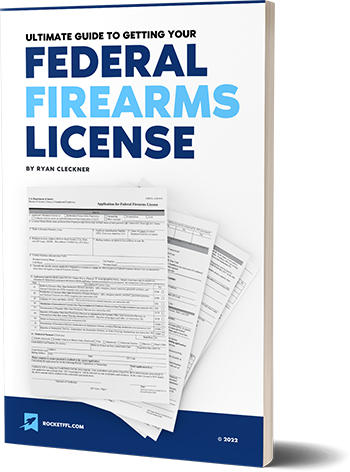
Getting Your FFL
So, there you have it. In four simple steps, you can become a licensed firearm manufacturer, firearm dealer, and/or international arms exporter or importer.
Even if you’re not interested in opening up a gun shop or being a full-fledged firearms business and you’d rather just collect an FFL transfer fee for conducting transfers, this may be for you.
Also, with the right type of license, you can be a manufacturer of ammunition or even just a curio and relic collector.
If you’re also wanting to sell or make an NFA item (like silencers/suppressors, short barreled rifles, armor piercing ammunition, and more), you’ll need to become a Special Occupational Taxpayer as well. Don’t worry – you can bundle our SOT course with our FFL course to save money and you’ll learn more about SOTs to see if it’s right for you in our Get Your FFL course.
FAQ – Getting Your FFL
An FFL is a federal firearms license that allows someone to be engaged in the business of making and/or selling firearms.
An FFL Costs anywhere from $10 to $66 per year depending on the type of FFL. Learn more about FFL Costs.
Yes! You can get an FFL out of your home. In fact, most FFLs in this country are home-based FFLs.
Yes, you can get an FFL for personal use – but, be careful. You can not get an FFL ONLY for personal use… you MUST have a business intent. But, that doesn’t mean that the FFL can’t also be used for some personal use.
The requirements for getting an FFL are very simple: you must be allowed to lawfully have firearms, you must have a business intent, and you must get the FFL in an allowed location. Learn more about FFL Requirements.
There are 9 types of FFLs that allow various activities from importing, making, or selling firearms. Learn more about FFL Types.
A Type 1 FFL is a dealer of firearms or gunsmith.
A Type 7 FFL is a manufacturer of firearms (who can also sell firearms and manufacture ammunition).
A Class 3 License isn’t really a thing – instead it is an FFL who registered as a Class 3 SOT and who can sell NFA Firearms. Learn more about Class 3 License.
After submitting a completed application, it typically takes 2 months to get an FFL.
The term FFL means Federal Firearms License.
Yes, most assault weapon laws that ban certain firearms or features have exemptions for FFLs.T
No. if you’d like to carry a handgun concealed, you’ll have to get a CCW that is valid in the state where you’d like to carry a concealed firearm.
An FFL is for buying, selling, and/or making firearms as part of a business.ype
Recommended Posts
148 thoughts on “How to Get an FFL License [2025] Step-by-step Guide”
Leave a comment

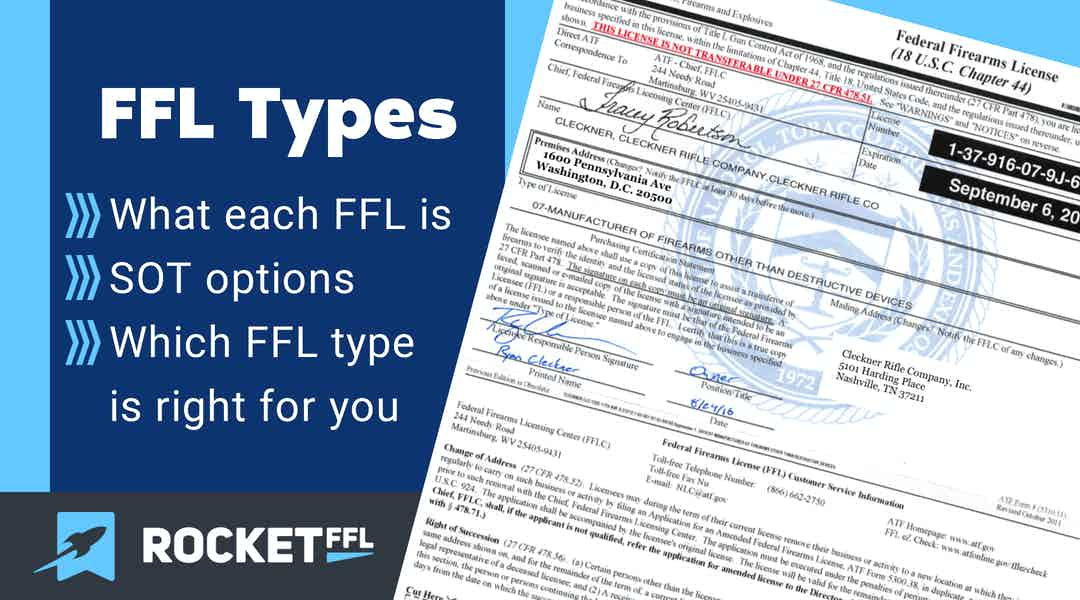
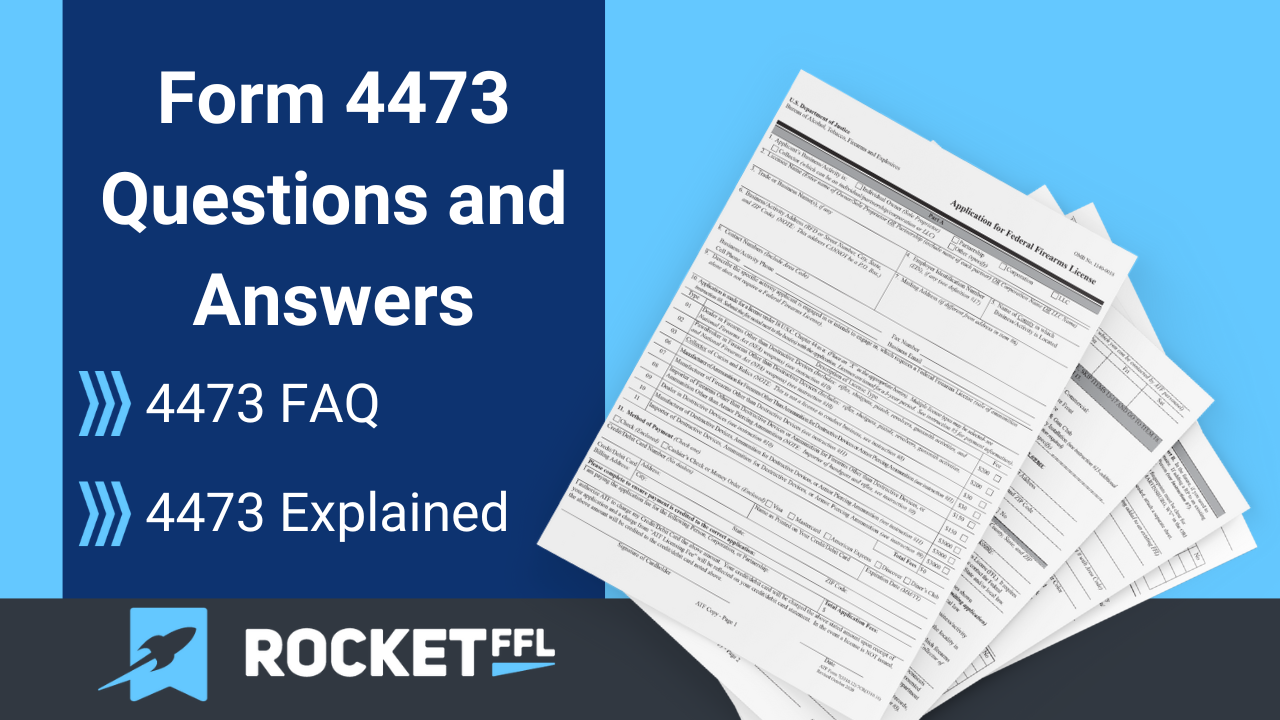
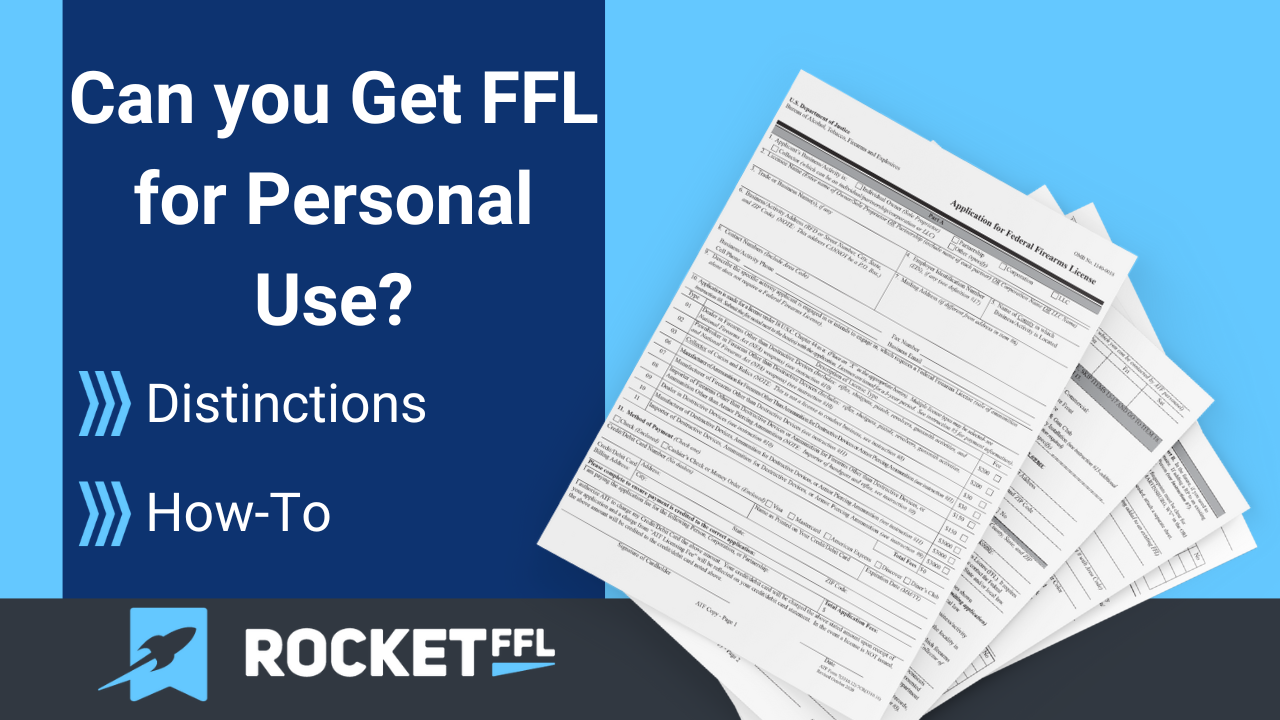
I am a little unclear on which type to get. I would like to open a small shop up, something of a Hobby/Sport for myself and others. I don’t want to be a big store, just a small place that can handle a few guns. I enjoy buying, trying and trading guns for myself and would like a way and means to help others do the same. It’s a great way to make new friends and help people. I don’t want to be a pawn shop but wouldn’t mind “pawning” or loaning money for guns to help. But you never know what the future holds. Thanks, Jamie Ramey.
The course should help you decide which is right for you.
I am interested in getting my FFL And Buying and Selling and Gun Smithing from my home ( Maryland). And also buying for myself as well..I am a Registered Collector in Maryland…What kind of experience am I being retired am I looking at…Thanks
[…] Act of 1968 (GCA), firearms that travel interstate (across state lines) must be transferred using a Federal Firearms Licensee (FFL). This means that firearm transactions (gift, loan, sale, etc.) that happen within the same state […]
A follow up on Troys question, what is the answer to “does having an FFL give me any more conceal carry rights than my current CCL?” Thank you Randy
Definitely not. An FFL is for being engaged in the business of making or selling firearms. It has nothing to do with concealed carry.
My question is as follows what if i want to deal online only like via Craigslist for example.. Or one day if i am lucky my own website? But i do not want to have a store front in AZ. SO how can you do that?
You’ll still need an FFL and a place to do business from – even if it’s only online.